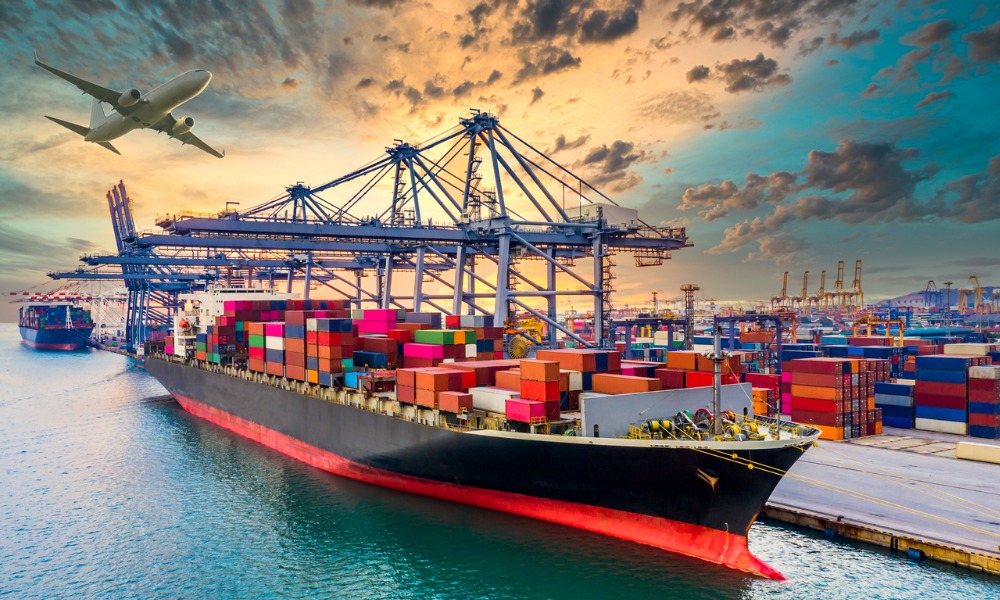Doug Ford urges us to avoid tariffs, highlighting Canada's critical minerals and energy exports

Ontario Premier Doug Ford has voiced his opposition to proposed US tariffs, expressing concerns about their potential economic impact, as reported by BNN Bloomberg.
Ford aims to bring his argument against tariffs directly to the Trump administration, highlighting that a trade war among North American countries could primarily benefit China.
Ford stated his eagerness to secure a deal that would grant the US increased access to Canada’s critical minerals and energy resources, bolstering strategic industries where the US has lagged behind China.
In an interview with Bloomberg, he emphasized, “The only people that win is China on a disagreement between Canada and the US.”
The Trump administration’s threat to impose 25 percent tariffs on goods from Canada and Mexico has disrupted the relationship among North American trading partners.
The prospect of these tariffs has prompted both Canada and Mexico to strategize responses.
Ontario, home to 16 million people and the core of Canada’s financial and manufacturing sectors, would face significant challenges from broad tariffs.
The province’s automotive industry, closely linked to US operations in Michigan, Kentucky, and other states, is particularly vulnerable.
Ford warned that if the US proceeds with punitive tariffs, Canada may have to retaliate. He pointed to Canada’s extensive trade relationship with the US, worth over $900bn annually, and suggested energy exports could be leveraged.
“Depending how far this goes, we will go to the extent of cutting off their energy,” Ford said, referencing critical supply routes to Michigan, New York, and Wisconsin.
Canada supplies the US with critical minerals essential for manufacturing and defence, accounting for 59 percent of Canadian critical minerals exports in 2023, valued at $29.8bn.
Meanwhile, the US relies on Canada for most of its aluminum, uranium, and potash imports.
Ford highlighted China’s recent ban on exporting key materials like gallium and germanium to the US, underscoring the importance of Canada’s resource contributions.
Despite the US trade deficit of $41bn, largely driven by energy imports from Canada, Ford stated, “Trump is not putting a tariff on that oil, no matter what.”
Canadian officials are exploring measures, including export taxes on critical commodities like uranium, as potential responses to US tariffs.
However, these would be last-resort actions. Ford reiterated his readiness to use energy exports as leverage but expressed hope it would not come to that.
“I’ll use every tool in my toolbox to protect Ontarian and Canadian jobs,” he stated.
Andrew Furey, premier of Newfoundland and Labrador, echoed Ford’s concerns but cautioned against immediately putting energy exports on the negotiation table.
“I would argue that our energy exports are our queen in this game of chess,” Furey said, advocating for a strategic approach to trade negotiations.
Internal political instability in Canada has added complexity to trade negotiations. Finance Minister Chrystia Freeland’s resignation earlier this week left a gap in the government’s strategy to address Trump’s trade threats.
Freeland cited disagreements with Prime Minister Justin Trudeau as the reason for her departure.
Trudeau appointed Dominic LeBlanc as Freeland’s successor.
Both Ford and Furey praised LeBlanc’s appointment, with Furey calling him “a smooth operator” who understands the importance of personal diplomacy.
Amid growing calls for Trudeau’s resignation from within his Liberal party, Ford refrained from commenting on the prime minister’s future.
He noted that Trudeau’s fate would be decided by his caucus and the New Democratic Party, which has supported the Liberal government on key votes.



